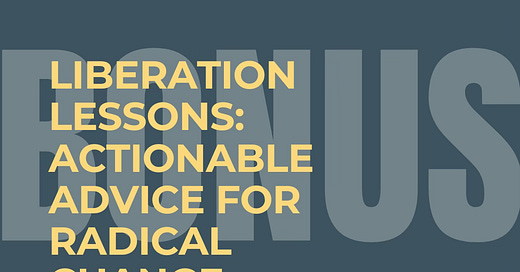What Stories Do Our Shadows Tell, and How does Supremacy Culture Impact That?
Liberation Lessons: Actionable Advice for Radical Change A Weekly Paid Subscriber Bonus
Dear Liberators,
The stories we tell ourselves have immense power. Some of these stories uplift and inspire us, while others—born from shadow—keep us tethered to self-doubt, fear, and the systems of oppression we seek to dismantle. Shadow work isn’t about banishing these parts of ourselves; it’s about naming them, understanding their origins, and bringing them into the light with compassion. This week, let’s explore how naming our shadows begins the process of rewriting our stories.
Supremacy culture—whether rooted in racism, patriarchy, classism, ableism, or other systems of oppression—thrives on unexamined narratives. It operates by shaping our internal stories, ensuring they align with its goals: control, compliance, and division. For the oppressor, supremacy culture offers permission and justification to dominate, exploit, or remain indifferent. For the oppressed, it demands silence, complicity, and the internalization of unworthiness. These narratives are not accidental; they are designed to sustain systemic hierarchies and prevent liberation.
As we embark on this journey of naming our shadows, we may encounter feelings of discomfort, grief, or even resistance. These emotions are not obstacles—they are part of the process. They remind us of the depth of these narratives and the power of releasing them. Naming our shadows is not merely seeking self-awareness but engaging in an act of rebellion against these imposed stories.




